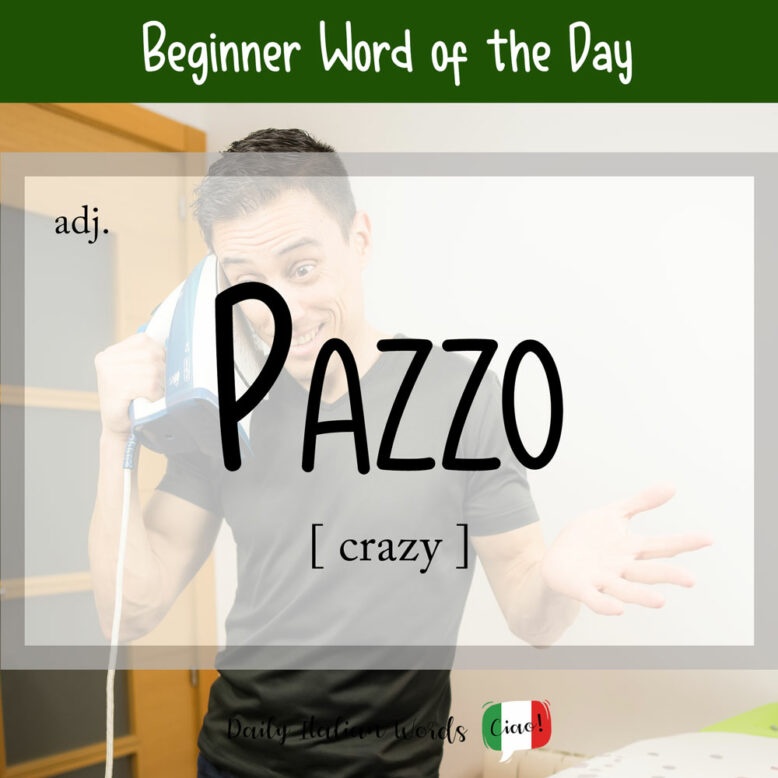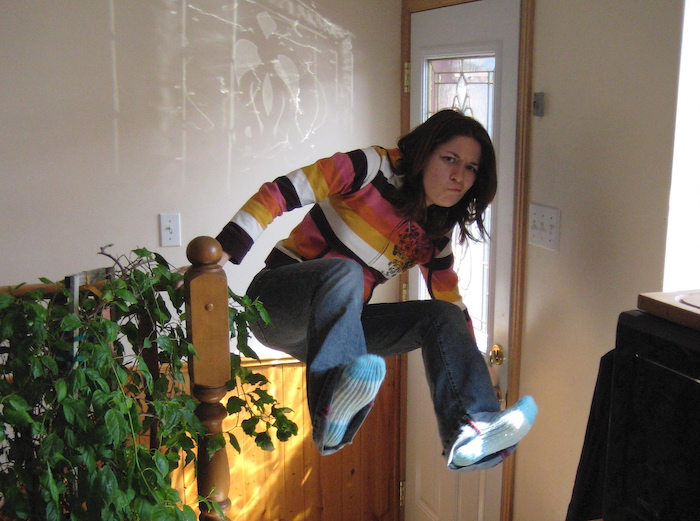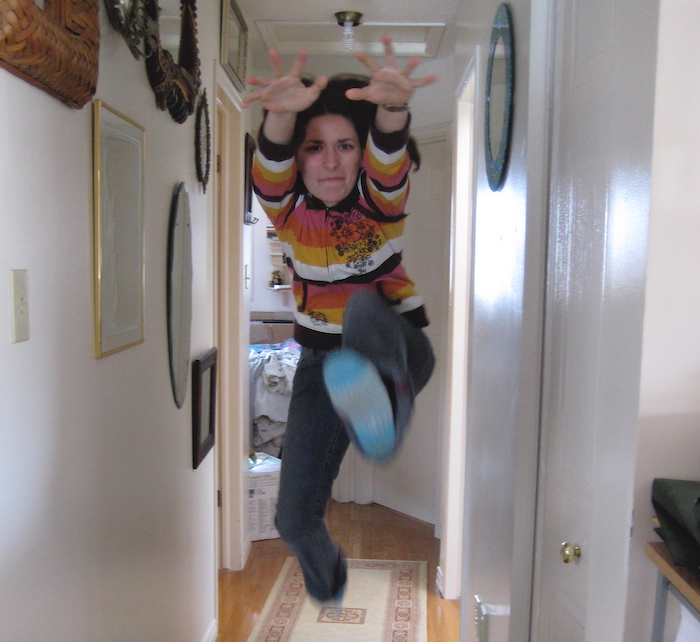A few months ago, I was coerced into watching the film Free Solo at the cinema and despite being on the edge of my seat the entire time, I have to say I’m glad I plucked up the courage to go!
This gripping documentary tells the tale of Alex Honnold and his groundbreaking free solo ascent up the face of El Capitan without a rope. As I watched him scramble effortlessly up the 30,000 foot rock face, with nothing between him and the ground but air, a single Italian sentence surfaced in my mind: Ma è pazzo!

Pazzo (feminine: pazza | plural: pazzi or pazze) is one of the most common words for crazy in Italian. It can be used as an adjective to describe people or things.
Quella ragazza è completamente pazza!
That girl is completely crazy!
Penso che sia un’idea pazza.
I think it’s a crazy idea.

You can also use pazzo on its own as a noun to refer to a crazy person or madman. Like in English, the person doesn’t have to be truly insane to be called crazy – it can also be used to talk about someone who behaves in an unconventional or unstable manner.
Hai visto quel pazzo che mi ha quasi investito?
Did you see that crazy man who almost ran me over?
Da pazzi is an expression used to describe crazy activities or actions.
Marco fa delle cose da pazzi a volte.
Marco does some crazy things sometimes.

If you want to say that you are crazy about someone or something, the word pazzo once again comes in very handy. When referring to a person, you’d say pazzo di (someone) whereas when talking about a passion, activity or object, you’d use pazzo per (something).
Io sono pazzo di te!
I’m crazy about you!
You can also use the expression va pazzo per which means go crazy for.
I ragazzi vanno pazzi per il calcio.
The boys are crazy about soccer.
Conversely if you want to say that someone/something drives you crazy, you can use the verb diventare + pazzo.
Mio figlio mi fa diventare pazzo!
My son drives me crazy!
The word pazzo is also contained within the verb impazzire which means to go crazy (either literally or figuratively).
Se non prende la medicina, impazzirà.
If he doesn’t take the medicine, he will go crazy.
Il pubblico è impazzito per la cantante.
The public went crazy for the singer.
Another extremely common adjective related to pazzo is pazzesco (feminine: pazzesca). It can also be translated as crazy in the negative sense but in some contexts, may also take on a positive evaluation as well. When used in a positive sense, it often translates as incredible or fantastic.
Com’era la festa ieri sera? – Pazzesca!
How was the party last night? – Crazy! (Positive)
Com’era il traffico ieri? – Pazzesco!
How was the traffic yesterday? – Crazy! (Negative)
Venezia è una città pazzesca.
Venice is an incredible city.
Finally we have two of my favourite words: pazzerello and pazzerellone. The former can be used as a noun or adjective to describe an individual who behaves strangely, or is capricious and rash. The latter only functions as a noun and has a more positive connotation, describing someone who is cheerful and enjoys pulling pranks on people.
There is also the verb pazzerellare which means to behave like a crazy person.
In summary, the ways in which the word pazzo is used in Italian are very similar to crazy in English, so it shouldn’t take too long for you to use it correctly!
Synonyms for pazzo:
- matto (crazy, reckless, odd)
- folle (crazy, deranged)
- squilibrato (unbalanced)
- essere/andare fuori di testa (be/go out of one’s mind)
- far uscire di testa (drive someone crazy)
Matto is a popular synonym for pazzo. In fact you are as likely to hear it as pazzo. Pazzo can have a more dramatic connotation in that it’s often used to describe a person who can’t be controlled. Matto can refer to someone whose craziness isn’t as pronounced. But in the spoken language, they are very easily interchangeable. It often comes down to individual preferences.
For example, when referring to someone who has completely lost their marbles, you can use the expression matto da legare (lit: so crazy he/she should be tied up) but pazzo da legare works too. The same rule applies to roba da pazzi or roba da matti, which both mean crazy stuff.
Te l’avevo detto io che quello era un matto da legare.
I told you that he was totally off his rocker.
Trivia:
One of the most popular songs of 1979 was Je So’ Pazz’ (Io sono pazzo = I am crazy) by Pino Daniele. Sung in the Neopolitan dialect, it is a unique mix of tarantella folk music and blues, a genre which Pino himself dubbed Taramblù. It is said to be a reference to the last speech of Masaniello, leader of the revolt against the rule of Habsburg Spain in Naples in 1647.
Heather Broster is a graduate with honours in linguistics from the University of Western Ontario. She is an aspiring polyglot, proficient in English and Italian, as well as Japanese, Welsh, and French to varying degrees of fluency. Originally from Toronto, Heather has resided in various countries, notably Italy for a period of six years. Her primary focus lies in the fields of language acquisition, education, and bilingual instruction.


